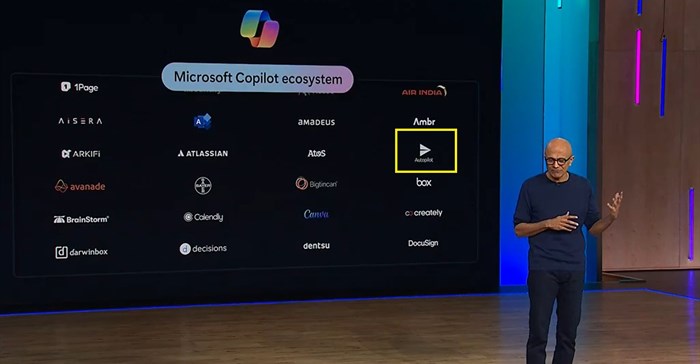Autopilot's new AI integrates into Microsoft Teams and Copilot

This follows Autopilot’s recent feature during the Microsoft Ignite conference, where the company was recognised among other early adopters of Copilot during the keynote speech by Microsoft CEO, Satya Nadella.
The newly launched Autopilot Accounts Payable AI utilises artificial intelligence to streamline the invoice management process within Microsoft Teams and Copilot.
Without leaving Teams, users can upload, assign, approve, and track supplier invoices through customised automated workflows. AI-powered, format-agnostic document data extraction allows instant visibility and the accurate movement of invoices for approval and payment.
Users can ask direct questions in Copilot chat for immediate insights, such as “What is the status of this supplier invoice?” or “How much have we spent with this supplier this year”.
Further invoice and expense claim applications to follow
“In full alignment with Microsoft’s direction and industry trends, we continue to integrate emerging technologies into our solution to deliver applications that solve distinct business challenges for users. This year, we are excited to present integration with Microsoft Copilot, becoming one of the first workflow automation solutions in the world to develop an accounts payable app that fully integrates with and leverages Copilot to deliver an innovative solution that solves a significant challenge for customers,” said Adam Shapiro, CEO of Autopilot Workflow Solutions.
“This most recent innovation focuses on AI and Generative AI to create extremely useful applications that streamline business processes. We’re proud to announce the release of Autopilot Accounts Payable AI, with further invoice and expense claim payment applications to follow later this year.”
This is not the first time Autopilot has been ahead of the curve. They were an early adopter into Microsoft Azure, building straight into the cloud as early as 2014, while competitors were still battling with on-prem solutions.
They were also early adopters of integrating into Microsoft Outlook and then Microsoft Teams, integrating in 2016 and 2022 respectively.
“We’re proud to be a part of the exciting Microsoft ecosystem and look forward to presenting further innovations that help make work easier, more efficient and more productive for all our users”, says Shapiro.










































